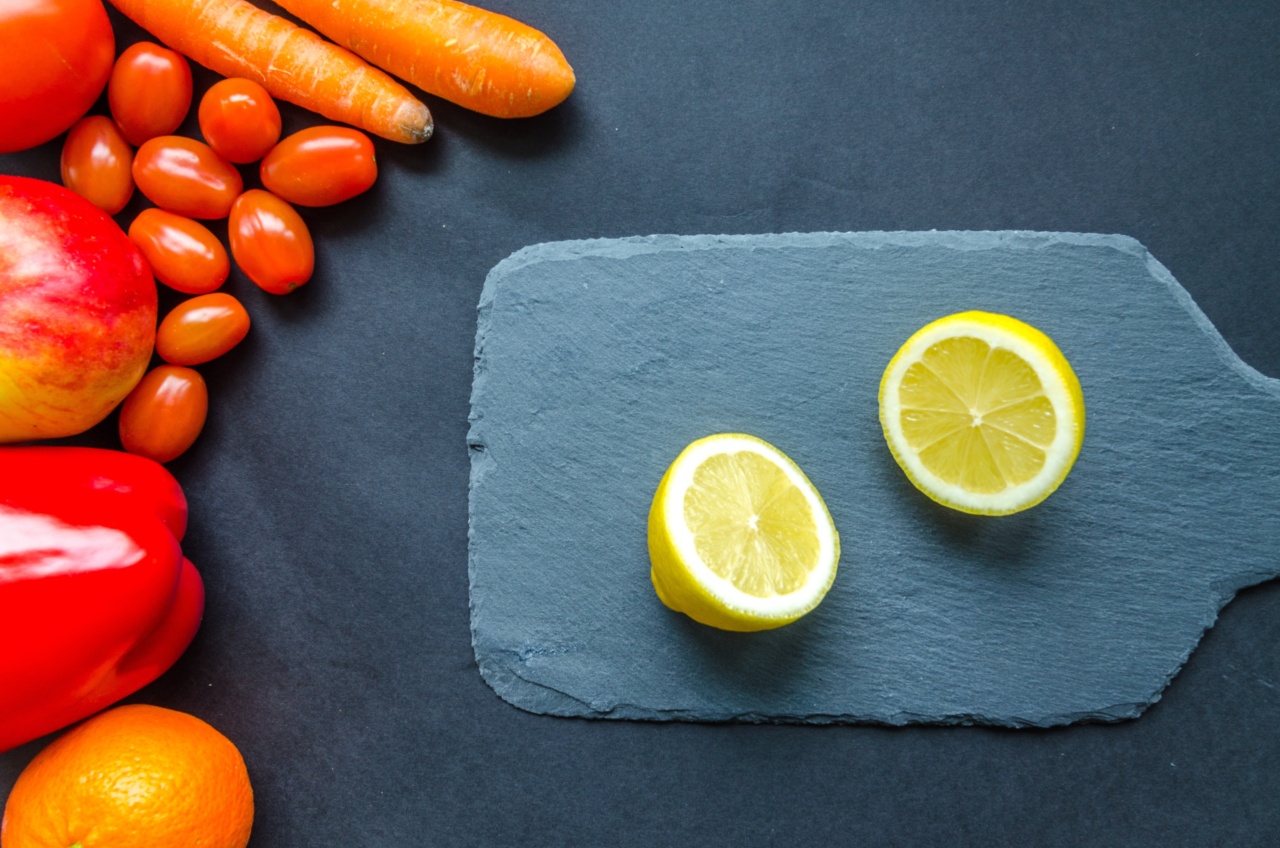Pregnancy is a crucial period when the nutritional needs of both the mother and the developing baby increase. It is important for expectant mothers to maintain a balanced diet that is rich in essential nutrients.
Fruits and vegetables play a significant role in providing vital vitamins, minerals, and fiber that are essential for the healthy growth and development of the baby.
Nutritional Benefits of Fruits and Vegetables during Pregnancy
Fruits and vegetables are packed with a variety of nutrients that are necessary for the optimal functioning of the body. They are excellent sources of vitamins, minerals, antioxidants, and fiber.
These essential nutrients provide a myriad of benefits to expectant mothers and their growing babies:.
1. Vitamins: Fruits and vegetables are rich in vitamins, particularly vitamin C, vitamin A, and various B vitamins.
These vitamins are crucial for boosting the immune system, promoting healthy cell development, and supporting the overall health of the mother and baby.
2. Minerals: Important minerals like iron, calcium, magnesium, and potassium are abundantly found in fruits and vegetables. Iron aids in the production of red blood cells and prevents anemia.
Calcium promotes bone health and helps in the proper development of the baby’s skeleton. Magnesium assists in muscle and nerve function, while potassium regulates blood pressure and fluid balance.
3. Antioxidants: Many fruits and vegetables are rich in antioxidants that help protect cells from damage caused by harmful free radicals.
Antioxidants found in berries, leafy greens, and colorful vegetables help in maintaining a healthy immune system and reducing the risk of chronic diseases.
4. Fiber: High-fiber fruits and vegetables aid in digestion, prevent constipation, and maintain optimal gut health. They also help in managing healthy weight gain during pregnancy and reduce the risk of gestational diabetes.
Recommended Intake of Fruits and Vegetables
The American College of Obstetricians and Gynecologists (ACOG) suggests pregnant women aim for a daily intake of 2.5 to 3 cups of vegetables and 1.5 to 2 cups of fruits.
It is important to include a variety of colorful fruits and vegetables to ensure a wide range of nutrients.
Best Fruits for Expectant Mothers
1. Oranges: Oranges are an excellent source of vitamin C, which aids in iron absorption, boosts the immune system, and promotes collagen production. They also provide folate, fiber, and potassium.
2. Berries: Berries such as strawberries, blueberries, and raspberries are packed with antioxidants, vitamins, and fiber. They are particularly rich in vitamin C and folate, which are essential for fetal development.
3. Avocados: Avocados are high in healthy monounsaturated fats, which are important for the development of the baby’s brain and tissues. They also provide essential vitamins such as vitamin K, vitamin E, and folate.
4. Bananas: Bananas are a great source of potassium, which helps regulate blood pressure and muscle function. They also contain vitamin B6, vitamin C, and fiber, which promote digestion and prevent constipation.
5. Mangoes: Mangoes are not only delicious but also provide essential vitamins like vitamin C and vitamin A. They are rich in dietary fiber and assist in digestion and promoting healthy skin during pregnancy.
Best Vegetables for Expectant Mothers
1. Leafy Greens: Leafy greens such as spinach, kale, and Swiss chard are powerhouses of nutrients. They are rich in iron, folate, vitamin C, vitamin K, and fiber.
These vegetables help in preventing anemia, promoting proper brain development, and maintaining healthy bones.
2. Broccoli: Broccoli is an excellent source of vitamin C, calcium, vitamin K, and folate. It is also rich in fiber and antioxidants.
Including broccoli in the diet supports healthy fetal development and strengthens the immune system of expectant mothers.
3. Carrots: Carrots contain beta-carotene, which is converted into vitamin A in the body. Vitamin A is crucial for the development of the baby’s eyes, skin, and immune system. Carrots are also a good source of fiber and potassium.
4. Bell Peppers: Bell peppers, especially the brightly colored ones, are rich in antioxidants and vitamin C. They provide a good amount of fiber and folate, promoting a healthy pregnancy and ensuring the proper functioning of cells.
5. Sweet Potatoes: Sweet potatoes are packed with vitamin A, vitamin C, potassium, and dietary fiber. They promote healthy fetal development, aid in digestion, and help control blood sugar levels.
It is important to thoroughly wash all fruits and vegetables before consumption to eliminate any harmful bacteria or pesticides that may be present.
It is advisable to consult a healthcare professional or a registered dietitian to determine the specific dietary requirements based on individual needs.
Incorporating Fruits and Vegetables into Your Diet
Here are some tips to help expectant mothers incorporate a variety of fruits and vegetables into their daily diet:.
1. Snack on fresh fruits and vegetables: Keep washed and cut fruits and vegetables readily available for a quick and healthy snack option.
2. Add fruits to cereal or yogurt: Boost the nutritional content of your morning cereal or yogurt by adding sliced fruits like bananas, strawberries, or blueberries.
3. Include vegetables in soups and stews: Add a variety of vegetables to homemade soups and stews to increase the nutrient content and enhance flavor.
4. Blend fruits into smoothies: Blend a combination of fruits, yogurt or milk, and ice to create refreshing and nutrient-rich smoothies.
5. Experiment with vegetable-based dishes: Try new recipes that incorporate vegetables as the main ingredients, such as vegetable stir-fries or roasted vegetable medleys.
Remember to listen to your body and choose organic produce whenever possible.
Eating a diverse range of fruits and vegetables will provide you with the necessary nutrients for a healthy pregnancy and help create a solid foundation for your baby’s growth and development.






























